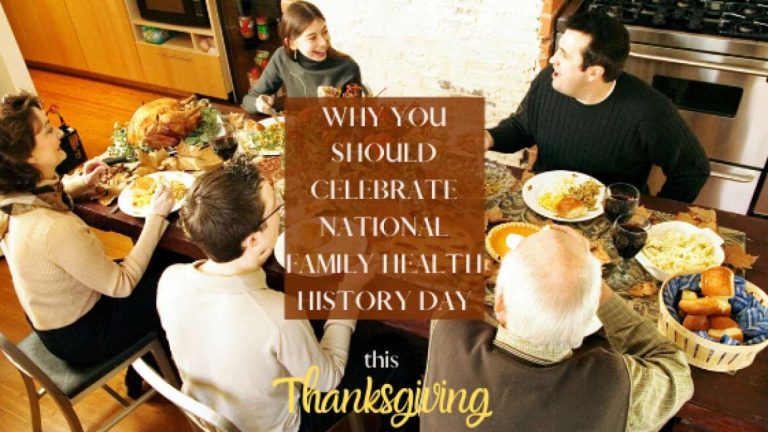Certain topics should be left off the table during Thanksgiving dinner—politics, religion, Cubs talk in Cardinals country. But one discussion we do need to have while all of our loved ones are together under one roof is our family health history.
Granted, no one wants to talk about cancer and diabetes while reaching for another helping of turkey and dressing. Once the last piece of pumpkin pie is eaten, the dishes have been cleared, and the tryptophan starts settling in, it’s the perfect time to get to the roots of your family tree.
The importance of your family’s health history
More than 6,000 health disorders are fueled by genetics—if one or more of your family members has a chronic disease, like breast or ovarian cancer, colorectal cancer, heart disease, diabetes, or arthritis, your risk for it increases significantly.
While you can’t change your genes, you can better understand them in order to make smarter decisions about your health and that of your children. Knowing your family history helps in a variety of ways:
- Unhealthy behaviors can be corrected sooner. In many cases, you can lower your risk for a chronic condition, even if you can’t completely erase it. For instance, if you know your grandfather had diabetes, it’s important you stop smoking, skip sugary foods and drinks, and be more active.
- Screening recommendations may be adjusted. Many women start getting mammograms at age 40, but if your mother or grandmother was diagnosed with breast cancer before age 50, you might want to begin screening earlier or even undergo genetic counseling to determine if you carry the BRCA breast cancer gene.
- Genetic testing can be done prior to pregnancy. If you or your partner has a family history of congenital disorders, developmental disabilities, or genetic diseases, such as sickle cell anemia or Tay-Sachs disease, knowing what to test for helps you address or even prevent potential health issues.
Start talking now to protect your family down the road
Unfortunately, many individuals aren’t aware of their risk of genetic conditions, because 1) family members keep their health issues to themselves, and 2) it can be hard to track down the health history of loved ones who have passed away.
Since 2004, the U.S. Surgeon General’s office has recognized Thanksgiving Day as National Family Health History Day to address the importance of understanding the hereditary factors that could affect your family’s well-being. This November 28, take 10 minutes out of the celebration to ask your parents, siblings, grandparents, and other blood relatives the following questions:
- Do you currently have any chronic health conditions like heart disease, diabetes or high blood pressure? Have you battled a serious disease, such as cancer? At what age were you diagnosed?
- Have you suffered from an acute health emergency, such as a stroke or heart attack? What year did it occur?
- Have you been diagnosed with any mental health issues—for instance, depression or anxiety?
- Do you suffer from any allergies, including those caused by food, pet dander or medications? How does your body react to these allergens?
- If a relative has passed away, do you know if they ever suffered from a serious health condition? What was the cause of their death, and at what age did they pass away?
- What is the ancestry of our family, or where did our ancestors emigrate from? (For example, the risk of cystic fibrosis is especially high in Caucasian individuals of German descent).
All answers should be written down and provided to your fellow family members. Or, to make easier, input all of the data into the Surgeon General’s online My Family Health Portrait, which allows you to update information anytime, pass your family’s health history on to loved ones, or print out a hard copy to share with your healthcare provider so they can determine your risk for certain illnesses.
In less than 20 minutes, you can have an important conversation that could save your family members’ lives and get right back to enjoying a day of football, parades, and leftovers!






